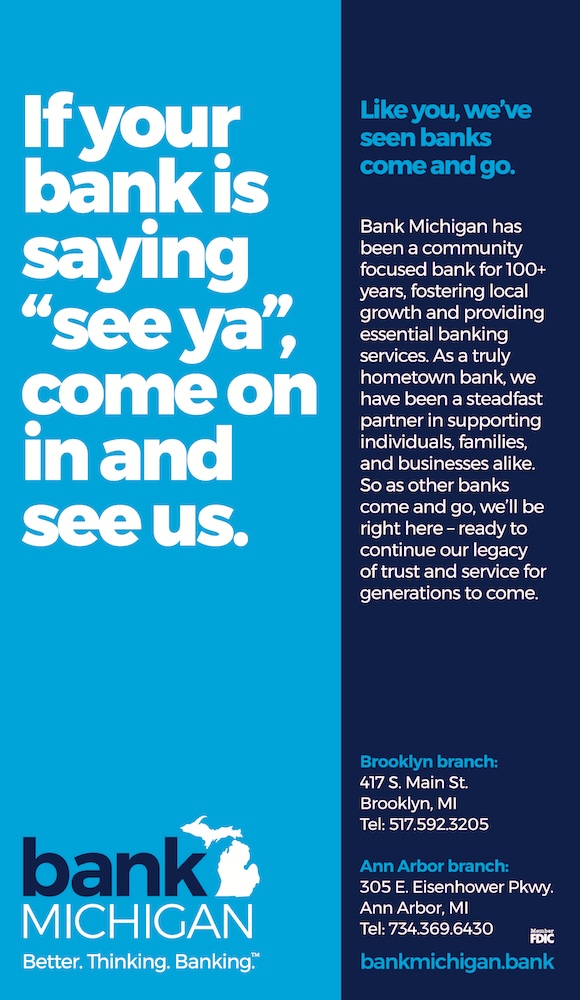West Michigan will be home to state’s 2nd massive EV battery factory

This rendering shows the plans for what is expected to be Michigan’s second massive electric battery factory. LG Energy Solution will expand its Holland facility, investing $1.7 billion and adding 1,200 jobs. (Rendering courtesy of LG Energy Solution)
By Paula Gardner (Bridge Michigan)
The state’s race to attract billions in new electric vehicle battery production leapt ahead last Tuesday as officials approved a round of incentives that will help fund a massive expansion of a West Michigan factory.
LG Energy Solution plans to spend up to $1.7 billion on the project, adding 1.4 million square feet to its existing battery factory in Holland, along with an estimated 1,200 new jobs. Groundbreaking is expected this spring.
The new capacity will be used to produce large lithium-ion battery cells and packs for electric vehicles. Customers include Ford, General Motors, Chrysler and Tesla — all automakers quickly adding production capacity as they plan to increase EV sales across the globe.
“We know that competition nationally and globally really for these battery manufacturing plants is really high,” Amanda Murray, vice president of Business Solutions for Lakeshore Advantage, the economic development agency for Allegan and Ottawa counties, told Bridge Michigan.
“Projects like this are really going to cement West Michigan as a leader in the future of automotive electrification.”
The Michigan Strategic Fund on Tuesday approved $189 million in incentives for the LG expansion, and the company is seeking other funding that could bring total incentives to $525 million.
The incentives come as Michigan seeks a foothold in the highly competitive EV sector as about a dozen major battery plants shop for sites across the U.S.
“I don’t know that we’ll ever see a project this big again,” Murray said. “… This is going to have a huge impact on the future of the local economy.”
It’s big for the state, too, Quentin Messer Jr., president and CEO of the Michigan Economic Development Corporation, told Bridge Michigan on Tuesday.
“It’s incredibly important for us to retain and expand the businesses that have already made Michigan their home,” Messer said.
Michigan also continues to try and lure new EV investment, hoping to retain its edge in automotive development and manufacturing.
“This allows us to be in a better position to win additional future investments by securing this one,” Messer said.
Among the benefits of the expanded factory complex in Holland will be the new jobs, Murray said. The state said that LG is expected to wrap up hiring by 2025, and the average rate of pay for the new jobs will be $31.47 per hour, or about $65,000 per year.
The median household income in Allegan County was $63,734 in 2020, the most recent year available.
But just as important, she said, will be the automotive suppliers that make parts for the batteries that are likely to relocate to the region so that they can have proximity to LG.
The company already employs 1,495 people in Michigan, where it’s operated in Holland since 2010. The new facility will include a main manufacturing building, a warehouse, administrative offices and space to conduct quality tests.
The state incentives were awarded during a meeting of the Michigan Strategic Fund, the public funding arm of the Michigan Economic Development Corporation.
The money will be spread across tax abatements, workforce training, and a grant based on reaching hiring totals. Additional funding from other sources also will benefit LG’s expansion.
The company originally sought at least $525 million, according to a memo from the city of Holland discussing the proposal in January.
Eventually, the total incentives from multiple sources including the state could reach that amount, Murray said. Details on future requests were not available Tuesday.
The Michigan Strategic Fund approved a series of incentives for LG:
- $132.6 million in property tax abatements through a 20-year Renewable Energy Renaissance Zone;
- $10 million from a Business Development Program Grant, which is based on whether the company fulfills the 1,200-person hiring goal;
- $10 million in a Jobs Ready Michigan Program Grant to assist with training and hiring;
- Up to $36.5 million in Community Development Block Grant funds to Allegan County to reimburse the company for the purchase of machinery and equipment;
- $50,000 to Allegan County for grant administration.
Additional awards to the company so far total $35 million:
- $5.18 million from West Michigan Works!, which is supporting this project with a workforce hiring and training plan;
- $14.5 million in Michigan New Jobs Training through Grand Rapids Community College;
- $1.7 million New Market Tax Credit from Michigan Community Capital, a non-profit public-private partnership that supports the MEDC and the Michigan State Housing Development Authority;
- $2.9 million in a city tax abatement;
- $10 million for a new electrical substation from the Holland Board of Public Works;
- $1 million from a Holland economic development incentive.
The incentives were not funded through the state’s $1 billion SOAR fund, which was approved in late 2021 for the state to pursue large-scale projects that could be considered transformational.
By January, the Michigan Strategic Fund awarded the first round of funding from the SOAR Fund: About $666 million was awarded to General Motors for its $7 billion expansion in the state, including a new battery plant in Lansing.
While the LG project in Holland is similar in scale, it was initiated years ago as LG identified plans to expand its existing campus. That made it ineligible for the new funding.
But competition for battery plants and their suppliers has heated up since those talks began, bringing a heightened level of competition for the businesses, Murray said.
“Having LG already in the community and having adjacent land available for development, I think gave us a competitive advantage,” she said.








You must be logged in to post a comment Login